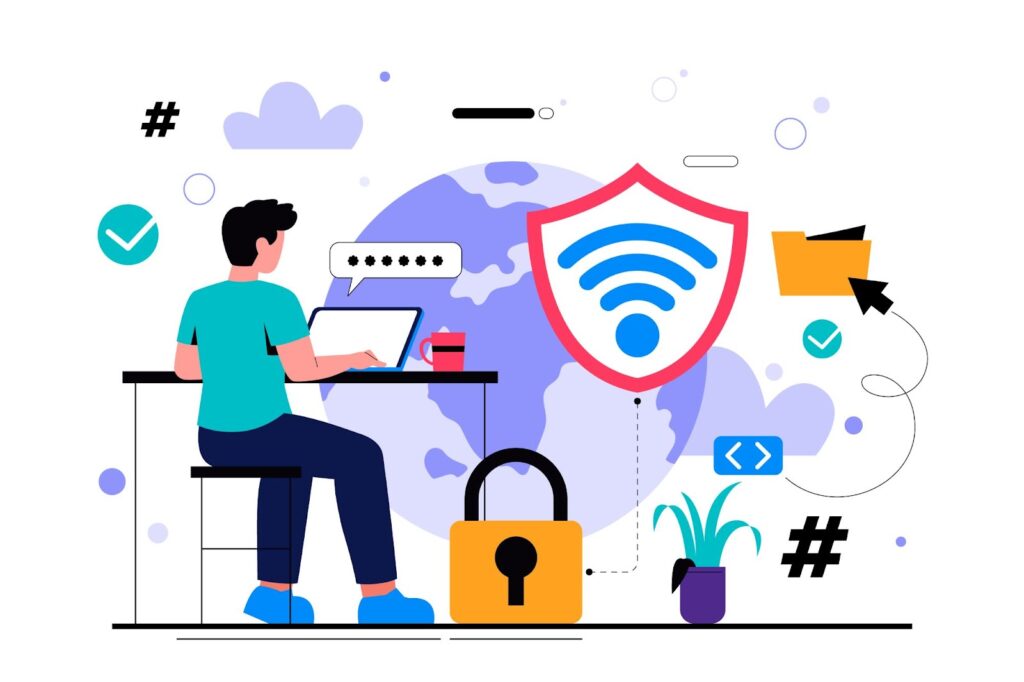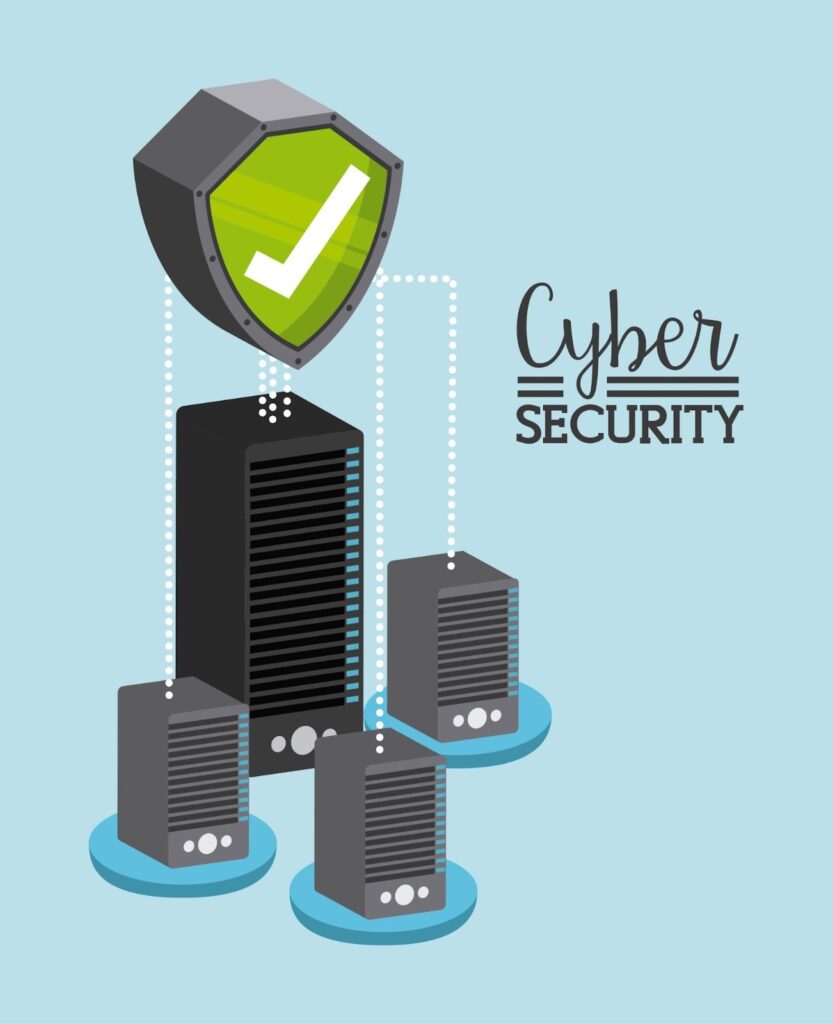
The Basics and Benefits of Network Security
Network security has become a necessity as cyber threats are on the rise. It uses different tools and software to keep your information safe.
By securing your network you can ensure your business runs its operation smoothly. So, you must learn about its basics and benefits so that you can be prepared to handle cyberattacks in the future.
In this blog, I will share its definition, key component, and also its types. You will learn the simple ways to improve your protection. So, let’s begin the discussion with an understanding of network security.
How to understand network security

You must understand network security first before you even use it. So, you should learn its definition then its key components along with its types. So, let’s learn about the definition of network security:
- What is Network Security?
Protecting your computer and its data within a network using different technologies and software from any cyber threat is known as network security.
Suppose, you have Wi-Fi at home that you use regularly and sometimes for official purposes. If it is not protected, a hacker can target it and steal your data. With good network security, you can prevent these data from stealing.
In network security, different protections such as passwords, firewalls, and antivirus software are mostly used. Businesses also use network security so that they can keep their data safe. Running a business smoothly becomes easier with network security.
Read: The Strategic Importance of Machine Uptime and Availability in Manufacturing
- Key Components of Network Security
Let’s explore the key components of network security together:
Firewalls
Firewalls act as a barrier between your internal network and the outside world. They monitor traffic coming in and going out. These block unauthorized access based on pre-set rules. This helps protect your network from potential threats.
Encryption
Encryption is essential for data security. It turns sensitive information into code that can only be read by someone with the correct key.
Intrusion Detection Systems (IDS)
IDS tools watch your network for unusual or suspicious activities. They alert you if they detect any unauthorized attempts to access your system. So, it helps you respond to threats quickly.
Antivirus Software
Antivirus software is software that scans your systems to find out viruses and malware. With its help, you can detect, block, and remove harmful files. Remember that you must keep your antivirus programs updated to stay protected.
Access Control
You can handle who can connect to your network with access control. It ensures that authorized users and devices can access your resources.
- Types of Network Security Attacks
The types are:
Malware
Malware can damage or control your computer and steal data. This software can be installed automatically by itself through the internet. It can also connect with all devices through the internet. After taking control it can delete essential files or disrupt system operations.
Phishing
Phishing attacks trick people into sharing personal details like passwords or credit card info. They urge you to click on harmful links, and after that, they steal your data.
DDoS (Distributed Denial of Service)
DDoS is the cause of slowing or becoming inaccessible. Hackers use multiple devices to flood the target, making it difficult to trace and stop the attack.
Man-in-the-Middle (MITM)
An MITM attack allows them to monitor, steal, or alter the information being shared. This type of attack is often used to access sensitive data like passwords or financial details.
The Benefits of Network Security

When you switch to network security, you can get many benefits. You must learn about the benefits so that you don’t regret it. So, the benefits are:
- Protection of Sensitive Data
Remember that network security keeps your important information safe. You can also keep your company’s sensitive information secure.
- Ensuring Business Continuity
A strong network means your business can run smoothly without any interruptions. Cyberattacks can cause downtime, which slows everything down and costs money. With good network security, you can avoid these disruptions and keep your operations running as usual.
- Compliance and Regulatory Adherence
Many industries have strict rules about data protection. Network security helps your business follow these rules, like GDPR or HIPAA, so you don’t face fines or legal issue.
- Improved Customer Trust and Reputation
Strong network security builds trust, showing clients that their data is secure. When people trust you with their data, they’re more likely to do business with you, which can improve your reputation.
- Financial Savings
Cyber attacks are expensive as after losing data you must pay legal fees to get back your data. It can even damage your reputation. Investing in network security can save you money by preventing these issues. It is a smart investment that keeps your business safe. This also saves you from costly problems down the line.
Implementing Network Security Best Practices

You must ensure network security by implementing the best practices. Here, I will share the best practices for strong network protection.
Try Firewalls
You must try firewalls to ensure that you apply them to all your devices. It helps you to block unauthorized access. Through this, you can increase your network’s safety.
Update Software Regularly
You must work on regularly updating your operating system and antivirus software. You also ensure that all applications fix bugs and security gaps.
Educate Your Team
Human errors can be the reason for huge security risks. So, you must provide training so that your team can learn about phishing attempts. They must learn about strong passwords, and reporting suspicious activities. Remember to create awareness among your team also works as a protection.
The Future of Network Security
More businesses are moving online, and hackers are finding new attack methods. Companies need to boost their security by not trusting anything automatically and limiting access.
Keep security systems simple to better manage complex networks. Cyberattacks are becoming more focused, especially with the use of online apps and connected devices. Build stronger defenses to keep your business running smoothly, even during attacks.
Conclusion
You must protect your network from cyberattacks by using technologies, software, and encryption. Remember to use strong passwords and VPNs and educate your team to secure your network. To run your business in the future, you must be prepared to save your data even during attacks. With proper network security, you can protect your important data from cyber attacks.